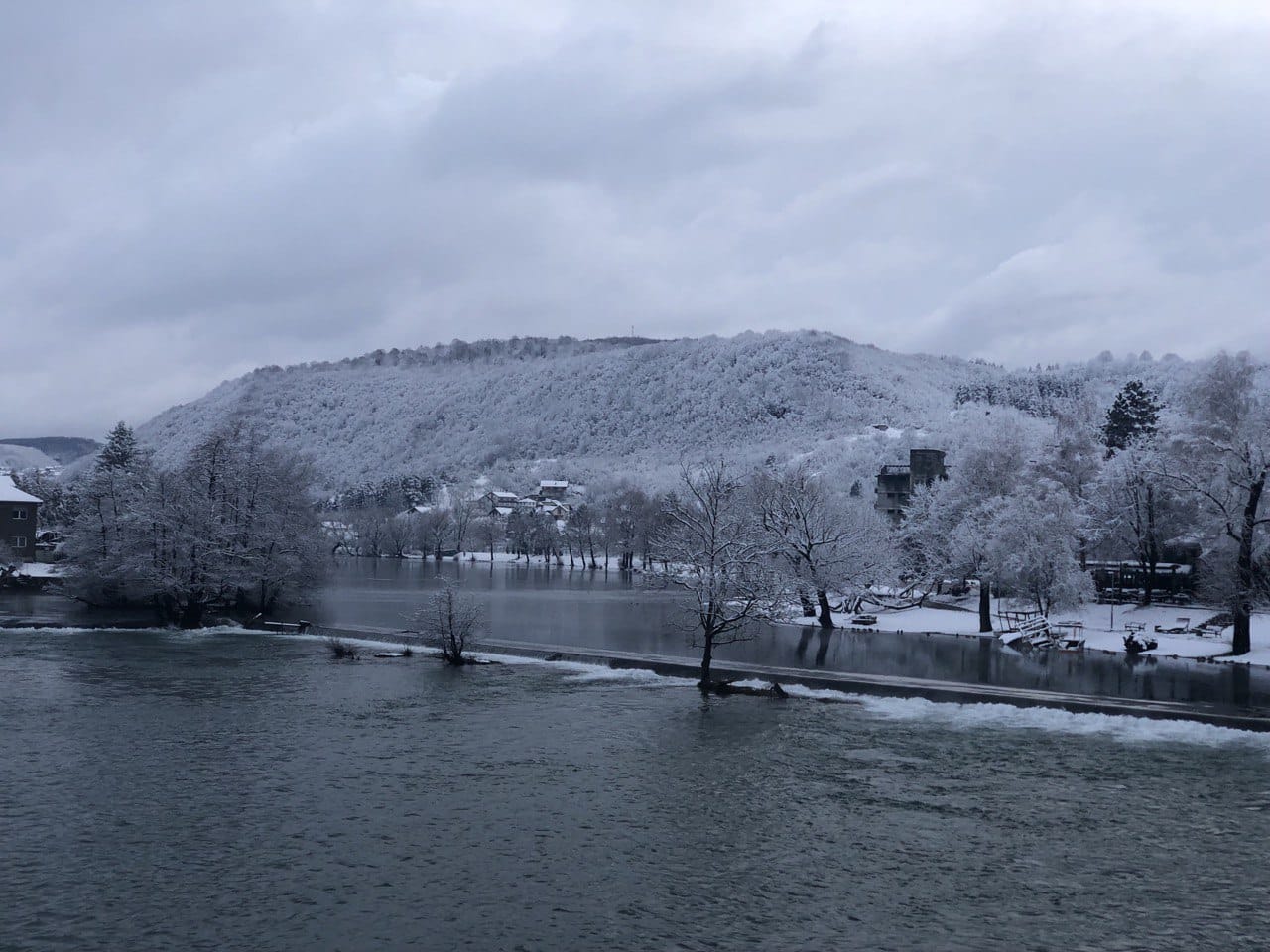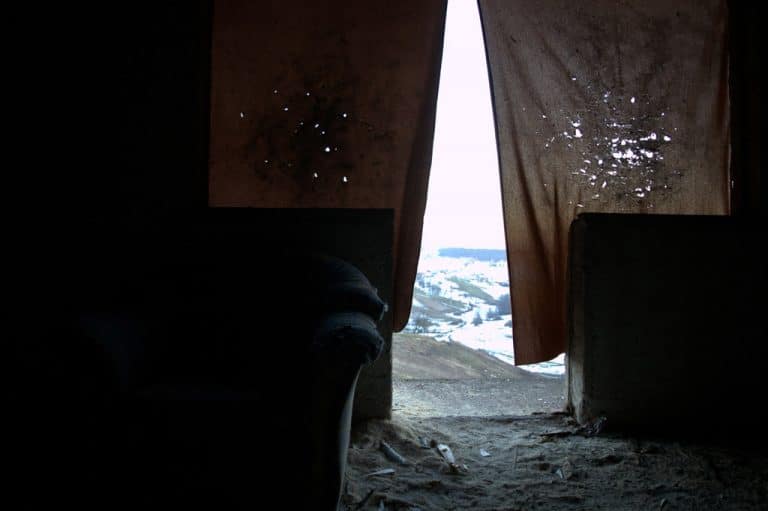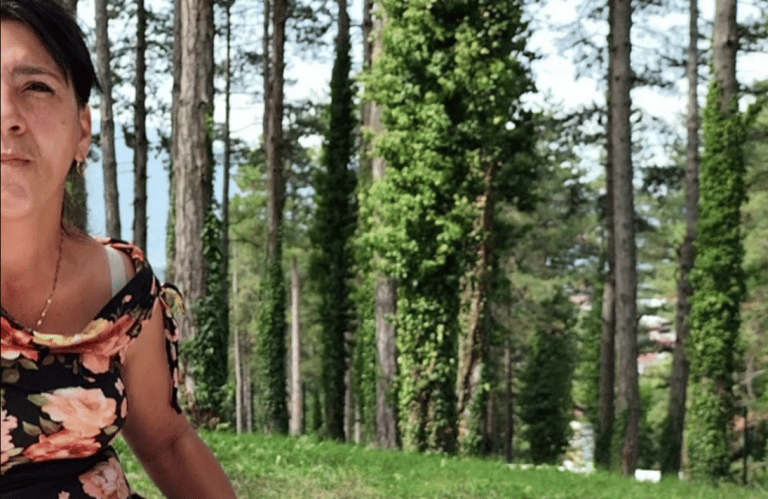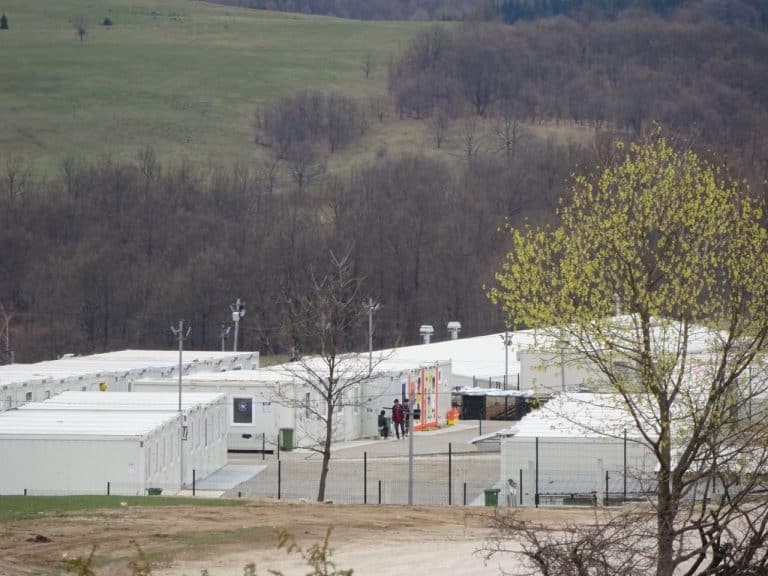By Masa Nazzal as part of No Name Kitchen. Pictures by Masa Nazzal.
Transit camps, in theory, are meant to be spaces of sanctuary, protection and care for people on the move. It is meant to be the space where the basic human needs, and basic human respect can be given to people whose humanity is constantly stripped from them by the violence they endure travelling along the Balkan route. However, in practice camps function as a structure to segregate and monitor PoM’s, while providing them below average living conditions.
The team here in Bihac, Bosnia has seen over the past few weeks an increase of institutional violence happening within the city, especially amongst minors. Unaccompanied minors are some of the most vulnerable individuals travelling across the Balkans, they are the ones who need to be protected and safeguarded from violence both inside and outside the EU borders. Yet, we have seen the opposite amongst the institutions here in Bihac, specifically Borici Camp, the transit camp in the centre of Bihac reserved for unaccompanied minors, families, and women. This article outlines testimonies from several unaccompanied minors who faced bureaucratic and institutionalised violence in the spaces that were meant to protect them.
A couple of weeks ago we found two minors, both around 16 years old, lost, scared and tired, at the Bihac Bus station. They had just been pushed back into Bosnia by Croatian border officials. They tried to go back to Borici camp, but when they arrived they were denied entry.
The date of birth that the camp had placed on their official ID cards claimed that both of their birthdays were on 01/01/2006, making them both 18 and disqualified to stay at the family camp. The boys explained to me that they never put their birth date as 01/01/2006, that was the date of birth given to them when they arrived at Borici Camp, without asking the minors what their birthday was. But only one look at their faces, it becomes obvious that neither of them were 18, rather much much younger. When I saw them at the bus station, I was sure this was just a logistical error, and I told the boys to meet me in front of the camp the next morning, so that I can talk to the officials at the camp, and be the mediator/ translator for them. That night they slept in a squat, not the most ideal sleeping place for kids.
“Better live in the streets than go to Lipa Camp”
The next morning I met them in the playground in front of the camp and walked with them to the gates. The police stopped us, and I requested to talk to someone about the children’s predicament. A lady first angrily appeared, whose priority seemed extremely skewed. She didn’t even look at the two boys who were standing right by my side, instead she constantly kept asking me who I was (a question that shouldn’t even matter). She wouldn’t respond to my questions or requests, she wouldn’t even look at the boys, or ask if they were ok, after they spent the night on the streets. Her only reaction was coldness.
Then the next person came, but like the other administrator, there was no response, no solutions. The only answer I would get over the boys was, “our hands are tied, we tried to contact the inspector, but he says they have to go to Lipa [the adult camp]”.
Another administrator then walks in as well. My frustration grows as more people who give no real solutions continue to come to speak to me. He was aggressive, he spoke authoritatively to me and to the boys, and disciplined the boys for not looking at him while he spoke, all while everything he was saying was pointing to the boys being left behind on the streets by these fraught institutions. They didn’t need to look at them.
There was no solution given except free transport to Lipa Camp, which the boys denied saying, “they rather live on the streets than go to Lipa”.
Before the three of us left, defeated by such blatant institutional violence, I turned to ask the group of administrators if there were many people in the camp with the birthday 01/01/2006, and one of them said “yes”, and I followed that by asking “so they are all kicked out the moment their collective birthdays comes?”, the answer I got, “yes”.
In a similar story I heard, there was a minor, who had come back from 5 days in the forests, before being pushed back into Bosnia. The night that he came back from Croatia was his birthday, he had turned 18. At 1 am, an administrator from the camp came into his room and woke him up demanding his camp ID card. When he gave him the card, he realised he had turned 18, and in the middle of the night he kicked him out into the streets, instead of giving him the minimum courtesy of allowing him a night’s sleep.
Now that Bihac has become the main route pathway along the Balkan route with the evictions that have spread across northern Serbia, we are seeing a surging increase of people here, which only leads to more visible actions of institutionalised violence.
The same administrator that was involved in the second story, was also a key player in the institutional violence of another interlocutor, a 16 years old Moroccan. Who accounts a testimony of how he was kicked out of the family camp at 8 am.
He begins by explaining that he was sleeping in his room alongside 5 other unaccompanied minors when he was woken up at 8 am by a Bosnian police officer wearing a balaclava, flashing a light at the group of boys, yelling towards them to get up.
The officer proceeded to take the group of boys outside, where the administrator was waiting and working alongside the masked police officer. According to my interlocutor there was a group of 6 Moroccan teenagers, 6 Syrian teenagers, and 6 Egyptian teenagers who were all woken up and taken outside the family camp to enter into 3 different vans.
When they first exited the building and saw the administrator, my interlocutor pleaded with them saying “where are you taking us, where are we going”, the administrator responded saying, “Shut up or we will take you back to Serbia ”. According to my interlocutor, any attempt to communicate or understand what was happening would lead to the administrator threatening to deport them to Serbia. The administrator subsequently took the phones of all 18 boys and led them to the vans. Yet again, according to my interlocutor, many of the boys pleaded to not be forced into the vans, claiming that they were about to leave Bihac that day anyway. Their pleas were ignored and their phones were held hostage until they entered the van, and were only returned to them half way through the car journey.
According to the teenager, it was not until they were about to enter the vans that the administrator told them that they would be transferred to the camp in Sarajevo, on the other side of the country, a 7 hour bus journey south of Bihac. The minors had no say on a decision which was made without any form of communication or knowledge. Many of them were not planning on staying in the camp longer anyway, yet the choice of how to move and where to move was taken from them.
Life on the move is already precarious enough, it is truly a shame that these institutions have added to the systems of violence that PoM face everyday. These stories all communicate the thread of institutional violence brought upon people on the move, especially minors, by the insitionals and systems that are supposed to protect them. To protect means to care, which is the very thing that has been lacking in Borici Camp. To protect means to communicate, to translate, to make things comprehensible in a way and language that people can understand, so that they can have agency of the decisions and bureaucracy that encircle their lives.





